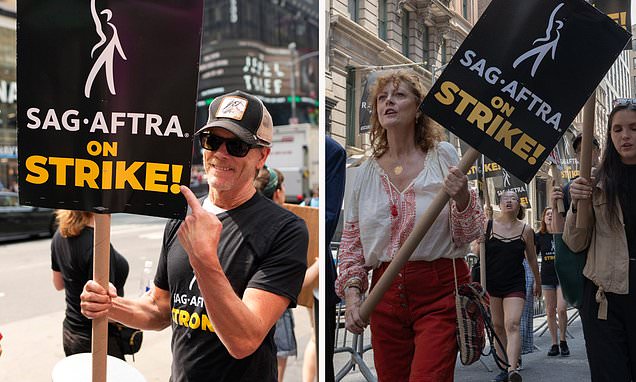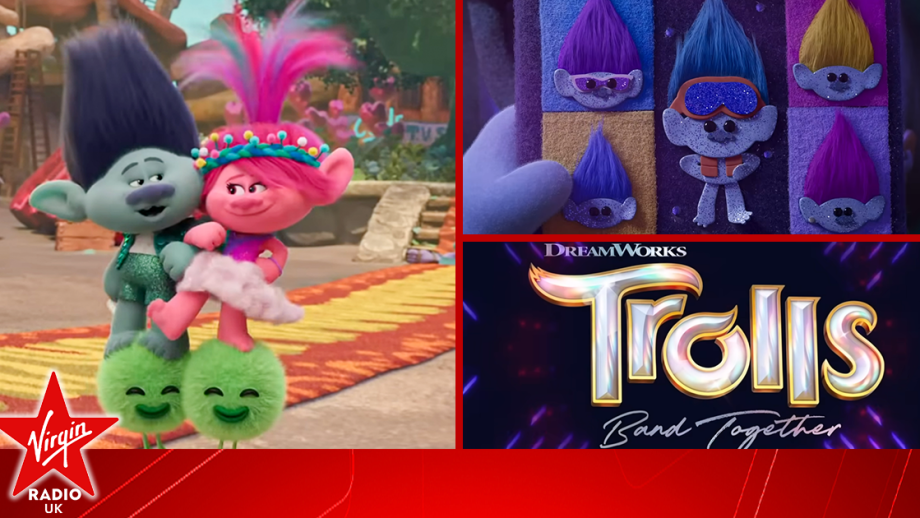Double Trouble In Hollywood: Writers And Actors Strike Brings Production To A Halt

Table of Contents
The Core Issues Fueling the Hollywood Strike
The Hollywood strike isn't just about money; it's about fair compensation, creative control, and the very future of the entertainment industry in the digital age. Several key issues have fueled this unprecedented double strike.
Fair Wages and Residuals in the Streaming Era
The shift from traditional television models to streaming platforms has dramatically altered the landscape for writers and actors. The old system of residuals, payments made to actors and writers each time their work is aired, has largely been dismantled in the streaming era. Streaming services often offer upfront payments, but these often don't reflect the long-term value and success of the shows or films. This has led to significant financial hardship for many creative professionals, especially those who work on shows that become massive hits on platforms like Netflix or Disney+.
- Lack of transparency in streaming viewership data: This makes it impossible for actors and writers to accurately assess the value of their contribution and negotiate fair compensation.
- Unequal distribution of streaming profits: Streaming services keep a large percentage of the revenue, leaving actors and writers with a smaller share compared to traditional television.
- Shorter contracts and fewer opportunities: The increase in short-term streaming deals means less job security and fewer opportunities for long-term career development.
The Threat of AI in the Entertainment Industry
The rise of artificial intelligence (AI) presents a significant threat to the livelihoods of writers and actors. Studios are exploring the use of AI to generate scripts and even create digital versions of actors, potentially eliminating the need for human talent altogether. This raises serious concerns about job security and the devaluation of human creativity.
- AI-generated scripts replacing writers: The possibility of AI producing scripts, albeit imperfect ones, threatens to displace writers and diminish their artistic contributions.
- AI-generated deepfakes replacing actors: The technology for creating convincing deepfake actors is advancing rapidly, raising concerns about the potential for studios to use AI instead of hiring real actors.
- Erosion of creative control: The use of AI in the creative process can shift control from experienced professionals to algorithms, potentially stifling artistry and originality.
Working Conditions and Exploitation
Beyond compensation and AI, the strikes address long-standing issues of exploitative working conditions. Many writers and actors face excessive workloads, long hours, inadequate rest periods, and demanding schedules that impact their well-being and creativity. The power imbalance between studios and creative professionals significantly exacerbates these problems.
- Mandatory overtime without compensation: This is a common complaint amongst both writers and actors, pushing individuals beyond reasonable limits without adequate pay.
- Unreasonable travel expectations: Many productions demand extensive travel from individuals, often at their own expense.
- Lack of health and safety standards: While varying across productions, inconsistencies in safety measures leave many vulnerable to potential harm.
The Impact of the Hollywood Strike
The Hollywood strike’s impact is far-reaching, extending beyond the immediate participants to the wider economy and entertainment consumers.
Production Delays and Financial Losses
The simultaneous WGA and SAG-AFTRA strikes have brought virtually all major film and television production to a complete standstill. This translates into significant financial losses for studios, production companies, and related businesses. Numerous film projects have been canceled or postponed, and television seasons are facing significant delays.
- Cancelled film projects: Major studio films, anticipated blockbusters, and independent projects have all been impacted.
- Delayed television seasons: This affects broadcast, cable, and streaming platforms and leads to programming gaps for viewers.
- Loss of revenue for supporting businesses: Catering services, location rentals, and other businesses that rely on film production are experiencing substantial revenue losses.
The Ripple Effect on the Economy
The economic repercussions of the strike extend far beyond Hollywood. Many cities and towns rely heavily on film production for tourism, local spending, and job creation. The strike is causing widespread unemployment among crew members, technicians, and support staff.
- Reduced tourism: The absence of film productions in specific locations leads to less tourist revenue.
- Decreased spending in local businesses: Local businesses that rely on the film industry for revenue are suffering losses.
- Unemployment claims among film crew: Thousands of individuals working in support roles are experiencing job losses.
The Impact on Viewers and Consumers
The most immediate impact on viewers is the anticipated delay or cancellation of many eagerly awaited films and television shows. The long-term effects are less certain, but they may include higher subscription costs for streaming services and a general shortage of fresh content.
- Shortage of new content: Streaming services and broadcast networks are facing potential content gaps.
- Delays in anticipated releases: Consumers are experiencing delays in seeing projects already in the works.
- Potential for increased subscription costs: Streaming services may try to recoup their losses by increasing subscription fees.
Potential Resolutions and Future of the Hollywood Strike
Reaching a resolution will require significant compromise from both the studios and the unions. Potential outcomes range from new agreements on residuals and improved working conditions to stricter regulations on the use of AI in the entertainment industry. The long-term implications of this strike will shape the future relationship between studios and creative professionals and how streaming services operate.
- New agreements on residuals: A major point of contention is a fair system of compensation for streaming revenue.
- Regulations on AI usage in entertainment: The unions may seek to limit the use of AI to protect jobs.
- Improved working conditions: Addresses like mandatory overtime, excessive workloads, and lack of health standards are at stake.
Conclusion
The double strike in Hollywood is a watershed moment. The core issues—fair compensation, the looming threat of AI, and exploitative working conditions—demand urgent attention. The economic ripple effects are immense, impacting studios, individuals, and local communities alike. The resolution to this crisis will profoundly shape the future of Hollywood. Understanding the intricacies of this Hollywood strike is paramount for everyone involved. Staying informed about the ongoing negotiations and potential outcomes is key to navigating this turbulent period. Keep following updates on the actors strike and writers strike to stay abreast of this evolving situation and its long-term impacts on the entertainment industry.

Featured Posts
-
 Anna Kendricks Age Revealed The Surprise Thats Got Everyone Talking
May 04, 2025
Anna Kendricks Age Revealed The Surprise Thats Got Everyone Talking
May 04, 2025 -
 Serhiy Sideys Second Year Expectations And Goals
May 04, 2025
Serhiy Sideys Second Year Expectations And Goals
May 04, 2025 -
 Corinthians X America De Cali Analise Do Empate Na Colombia
May 04, 2025
Corinthians X America De Cali Analise Do Empate Na Colombia
May 04, 2025 -
 The Complexities Of Financing A 270 M Wh Bess Project In The Belgian Market
May 04, 2025
The Complexities Of Financing A 270 M Wh Bess Project In The Belgian Market
May 04, 2025 -
 Simone Biles Riders Up Call Kentucky Derby Highlight
May 04, 2025
Simone Biles Riders Up Call Kentucky Derby Highlight
May 04, 2025
